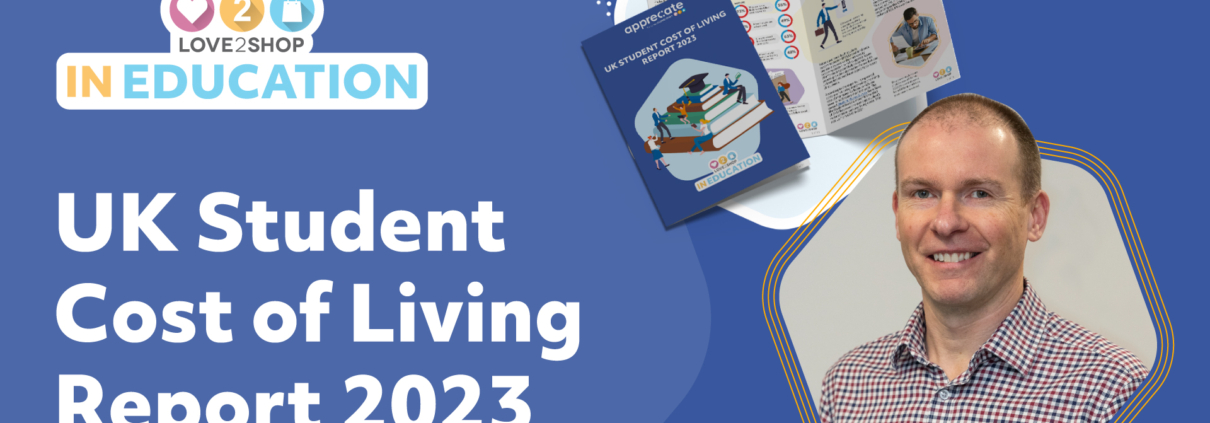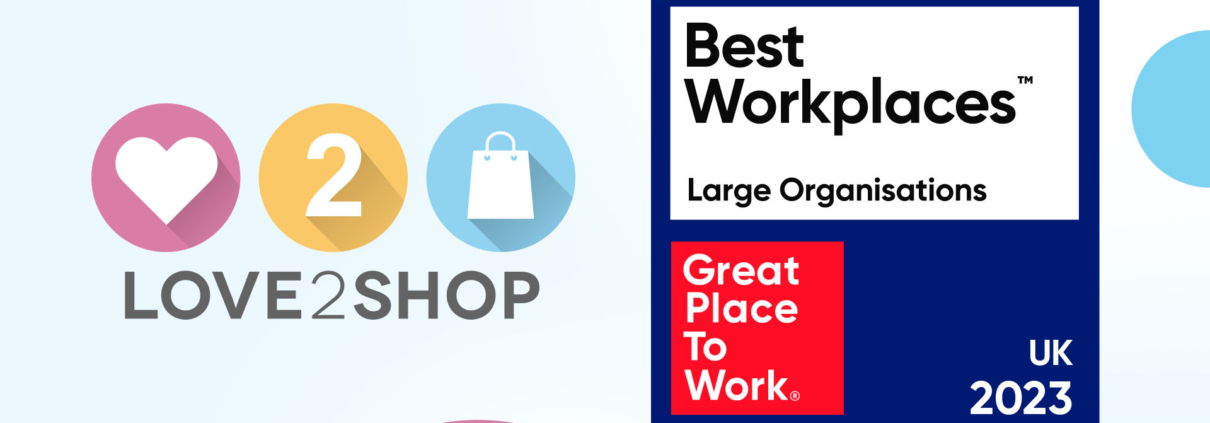As the UK’s leading gift voucher, corporate rewards and Christmas Savings business, we want to turn our attention to recognising the incredible women in our company to celebrate International Women’s Day 2023.
International Women’s Day has said its focus lies with embracing equity – creating a fairer society by adapting services and policies to people’s diverse lived experiences. As a company, we also believe that equity is not just a nice-to-have – it is a must-have.
To celebrate a world where difference is valued and celebrated, we have invited five especially inspiring women from our company to talk about their experiences of work during their careers. Here is Hayley’s story.

Hayley Bromley is the living embodiment of ‘feel the fear and do it anyway’.
Now firmly on dry land as the Treasury Manager at Love2shop, Hayley started her career sailing the high seas on a huge aircraft carrier.
Growing up in Coventry, the teenage Hayley decided she wanted to join the Royal Navy after leaving school. It was a big step to take and there was a point when she had a wobble about what lay ahead.
“When I was about to set off to do my basic training I remember crying at the station, saying goodbye to my mum and dad. My dad even called the base to find out if I was ok,” she explained.
“I was only 18 and it was terrifying.”
As you would expect in the military, Hayley found herself in a male-dominated environment. She said: “I have always got on with everyone, so it didn’t phase me going into the Navy with the majority being boys.
“I think that, out of my intake there were around five girls and 20-plus lads. The training was amazing. It didn’t matter if you were a lad or a girl, you just got on with it.
“However, I was a little quiet on the ship and sometimes there would be the odd comment such as, ‘Oh I don’t want her on our team’. Little things like that bothered me, but not too much.
“I joined as a medical assistant and I absolutely hated that role so I switched to being an operator mechanic on the radar and on the guns.”
Hayley spent three years in the Navy. It was there she met her husband and when she became pregnant with their first child, it prompted Hayley to make another big decision to leave the service at the age of 21.
“Me and my husband were going to be on different ships, so I didn’t think the baby only seeing one of us at a time was the best for either of us,” she said.
Just six months after the baby was born, Hayley returned to the workplace. While she was waiting to join the Navy, she had worked two days a week in the finance department at her dad’s work which gave her an early taste of accounting.
“I went back to work about six months after the baby was born,” she said. “I was an accounts payable assistant at a vehicle hire company for about a year before I left to have my second child.
“Then it was all change. My husband came out of the Navy and became a full-time dad and, again, I returned to work after about six month at a utilities company.”
Hayley worked in two more finance jobs before securing a role as a manager in a finance department. And, after several happy years, she found herself at the centre of a drama that matched anything she experienced at sea.
Her employer was Thomas Cook Airlines, a subsidiary of the Thomas Cook travel empire that spectacularly imploded in September 2019 after a £200m black hole opened up in its balance sheet. Although the airline itself was profitable, it was dragged down by its parent.
Hayley said: “I was really pleased when I got the job with Thomas Cook Airlines because I love anything to do with travel. I was there for six years and that was where I got most of my accounting experience.
“We were doing ok. It was the tour operator that was struggling. We knew something was going on because I was getting calls constantly from suppliers wanting payment without an invoice. It was totally full-on.
“I didn’t sleep. I just sat up flicking between new channels. The next morning my team messaged me asking what we should do and I said we should go into work. Even though the group collapsed in September we had to carry on working until November.
“There were lots of things that needed to be sorted out. There were bouncers on the doors to stop other people taking stuff. It was an awful time for everyone. Some people had been there for 20 years and they loved it.”
Hayley secured a temporary role with Love2shop but left when a permanent position came up elsewhere. However, she loved her short time with the business so much that she jumped at the chance to return, which she did two years ago.
“Being the Treasury Manager involves being in control of all the money, making sure the accounts are topped up with the correct amounts, protecting the money of our Christmas savers.”
Hayley is being supported to advance her career by taking accountancy qualifications. She is happy working in a business where she feels encouraged to grow in her job.
“I think it was more difficult as a woman years ago,” she added. “Now we have hybrid working and it is much easier to juggle things such as kids and nurseries. Back then, it was much more rigid if you were a mum.
“There is so much more flexibility in the workplace now. It was like when the Navy was going to put me and my husband on different ships – that was a real old-fashioned way of thinking. I now feel like I am in a very open and inclusive atmosphere.
“My line manager Lynn is brilliant. She is so knowledgeable and confident. I am training to be a treasury accountant; I don’t want to keep changing jobs. I want to make a career in a place that I like.”
What have you discovered about yourself during your career?
That I am more capable than I thought I was.
What do you know now that you wish you’d known when you were younger?
That you can always make a positive out of a negative situation.
Best advice from a mentor?
Focus on what you want to be rather than what others think you should be.
What would you do differently if you had to do it again?
I really wouldn’t change anything.
Biggest lesson learned?
That you are never too old to start again or learn something new.
What would you say to someone starting out?
It is your own journey and never compare yourself to anyone else.












